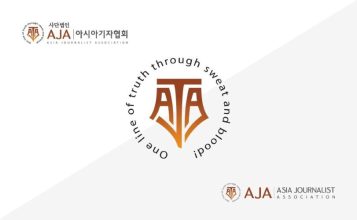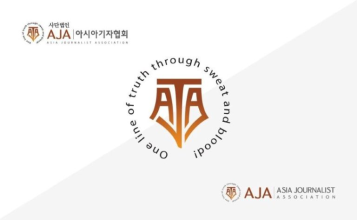AJA Newsbites – October 10, 2025

AJA Newsbites is a curated roundup of major news and developments from across Asia, brought to you by members of Asia Journalist Association (AJA)
Lee Sang-ki, THE AsiaN, Korea
The Korea Military Academy (KMA) — long considered a cradle of military and political elites and alma mater to three of South Korea’s fourteen presidents (Park Chung-hee, Chun Doo-hwan, and Roh Tae-woo) — is now facing a serious crisis. Of the 330 cadets admitted to the 81st class in 2021, only 223 were commissioned earlier this year, marking a record-low commissioning rate of 67.6%. Recent data reveals that 32% of cadets have abandoned their path to becoming officers, with over 80% citing a “career change” as their main reason for leaving. Experts attribute the trend to the academy’s rigid culture, inadequate compensation, and limited career advancement opportunities. Similar patterns are emerging at other service academies as well. Lawmakers warn that the decline in newly commissioned officers poses a fundamental threat to South Korea’s defense capabilities, calling for urgent reforms to restore morale and overhaul the current system.
Chhay Sophal, Cambodia News Online, Cambodia
Cambodian Prime Minister Samdech Thipadei Hun Manet stated that the recent delay of the Joint Border Committee (JBC) meeting, originally scheduled for September, was due to changes in the composition of Thailand’s JBC delegation.
Hun Manet expressed hope that the meeting would be convened in the near future to address the matter. He noted that the Agreed Minutes of the 1st Special General Border Committee (GBC) Meeting between Cambodia and Thailand, held on 10 September 2025 in Koh Kong Province, clearly reaffirm that the JBC is recognized by both sides as the key mechanism for resolving issues related to the joint border survey and demarcation.
The Agreed Minutes also stipulated that the issue should be referred to the upcoming JBC meeting as a priority agenda item, and both parties tasked the Regional Border Committee (RBC) to manage the matter in accordance with outcomes from future JBC discussions, Hun Manet added.
Nasir Aijaz, Sindh Courier, Pakistan
The Supreme Court of Pakistan has acquitted Anwar Kenneth, a mentally ill Christian man, who had spent 23 years in prison on blasphemy charges. The judgment was delivered by Justice Athar Minallah, who headed a three-member bench of the apex court.
The blasphemy case against Anwar Kenneth was registered on September 25, 2001. He is the son of Veera Masih. He had appealed his conviction and death sentence, which had been upheld by the High Court on June 30, 2014.
On December 15, 2017, the Supreme Court appointed a state-funded counsel to represent Kenneth, but he initially declined the legal assistance. A new counsel was later nominated by the Pakistan Bar Council, who then assisted the court on his behalf.
A medical board, constituted on the court’s orders, diagnosed Kenneth with Bipolar Affective Disorder. The court noted in its judgment that while the hypomanic phase of his illness had stabilized with medical treatment, he must continue medication and receive regular follow-up care to prevent relapse.
Bhanu Ranjan, Asia Journalist Association, Bangladesh
Around 13 million people in Bangladesh are currently suffering from vision impairment, and the number of patients with eye conditions is steadily rising. This was revealed by doctors at the National Institute of Ophthalmology in Dhaka, who reported that more than 3,000 patients seek treatment at the institute every day for various eye-related issues.
According to experts, cataracts and retinopathy are the most common eye diseases in Bangladesh. The leading causes of these conditions are diabetes and high blood pressure. Additionally, children are increasingly experiencing vision problems due to excessive use of smartphones and tablets, particularly through video games.
Amid these growing concerns, World Sight Day was observed on Thursday, October 9. The day is marked globally to raise awareness about eye health, the prevention of vision loss, and the importance of regular eye care.
Habib Toumi, THE AsiaN, Bahrain
Qatar has denied reports suggesting that it plans to shift its weekend from Friday–Saturday to Saturday–Sunday.
“There is no truth to the claims currently circulating that Friday will become a working day,” said the head of the Civil Service Bureau and Government Development.
Rumors had been circulating on social media within the Gulf nation that authorities were planning to designate Friday—a traditional day of rest in most Muslim countries—as a working day under a proposed shift to a Saturday–Sunday weekend system.
In 2022, Qatar’s neighbor, the United Arab Emirates, implemented a Saturday–Sunday weekend along with a four-and-a-half-day work week for its federal government sector in order to better align with global markets.
ⓒ THE AsiaN | All rights reserved
This content is copyrighted by THE AsiaN. If you wish to share it, please do so without modifying the original text and always include the source link. Unauthorized editing or sharing without proper attribution may result in legal consequences.


